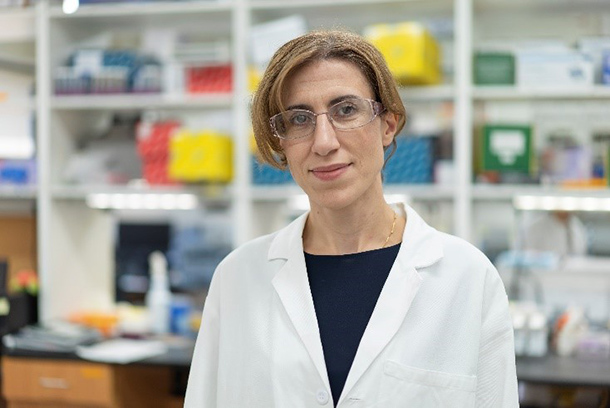A team of researchers at the USC School of Pharmacy has found that midostaurin, the first new drug in nearly two decades to receive regulatory approval for acute myeloid leukemia (AML), reduces regulatory T cells in patients with the disease.
The study, published in Scientific Reports, found that midostaurin, which was approved by the U.S. Food and Drug Administration (FDA) in April 2017 for use in AML patients in conjunction with chemotherapy prior to bone marrow transplant, led to a reduction in regulatory T cells in blood samples from both healthy individuals and leukemic patients.
“Regulatory T cells are the subset of T cells which function during transplant to suppress excessive immune response that can be harmful to the patient,” said corresponding author Houda Alachkar, PharmD, PhD, assistant professor of clinical pharmacy and pharmaceutical economics and policy. “Our findings indicate that further investigations are needed to establish whether midostaurin may have potential benefit if used in the post-transplant setting.”
Seeking a novel solution
Acute myeloid leukemia (AML) — cancer of the white blood cells — is one of the most common types of leukemia in adults, with the highest mortality rate of all leukemias. As many as one-third of AML patients have mutations in the FLT3 gene, some of which are known to worsen prognosis of the disease.
Researchers investigated the effect of four of the new class of FLT3 inhibitor drugs — midostaurin, sorafenib, tandutinib and quizartenib — on blood samples obtained from healthy donors as well as from patients with AML. Only midostaurin led to a significant reduction in regulatory T-cell markers.
Because midostaurin is currently FDA approved for treatment of AML, researchers validated the findings in samples from patients treated with midostaurin, testing samples from patients with AML at sequential times before and after midostaurin treatment.
“These results highlight a novel therapeutic advantage of midostaurin that may be beneficial particularly in the post-transplant setting as well as in combination with immunotherapy,” Alachkar said.
About the study
The work appeared in the journal Scientific Reports in December. The study’s co-authors included first author Lucas Gutierrez, Miran Jang and Tian Zhang of the USC School of Pharmacy, and Mojtaba Akhtari, MD, associate professor of clinical medicine at the Keck School of Medicine of USC.
The work was funded by the USC School of Pharmacy seed fund, the STOP Cancer Funding Award, the American Cancer Society Institutional Research Grant, the Ming Hsieh Institute research fund, and by grant UL1TR001855 from the National Center for Advancing Translational Science (NCATS) of the U.S. National Institutes of Health.
— Michele Keller


